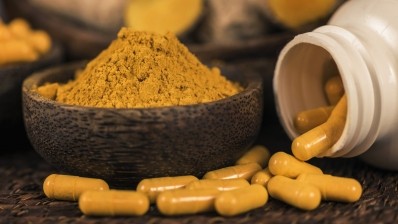Roundup by experts puts to rest common creatine misconceptions

The paper was published last week in the Journal of the International Society of Sports Nutrition. It was authored by a group of experts, including JISSN editors-in-chief Jose Antonio, PhD and Richard Kreider, PhD.
Thick sheaf of research papers on ingredient
The authors noted that creatine is one of the most widely researched sports nutrition ingredients. Research extends back to the early 1900s, and to date there have been more than 500 research papers published using the substance. Creatine (methylguanidine-acetic acid) is formed by the body via reactions involving the amino acids arginine, glycine and methionine in the kidneys and liver. In an exogenous sense the ingredient is primarily consumed in meat and/or as a dietary supplement.
Creatine has been connected to a number of sports nutrition benefits, including increasing muscle strength and size gains. And it has been suggested as helping athletes recover better after heavy bouts of training.
Bad reputation can stem from single negative mention
But some outlier observations have come along among those 500-plus studies supporting the ingredient. It’s something of an object lesson in the notion that good reputations take years of careful building, but a bad reputation may take only a single mark on the wrong side of the ledger.
The current JISSN paper points out the ISSN put out a position paper on creatine that summarizes the evidence supporting the ingredient’s benefits and addresses some of the safety/performance issues. Yet the misconceptions remain, some of which rest on slender reeds indeed.
Kidney damage issue shot down
Take the widely held misconception that creatine can cause kidney damage. According to the authors, this traces to possible misconceptions about creatine metabolism in the body and to a single case report dating from 1998. A patient who had been treated for more than eight years for kidney disease used a creatine supplement and subsequently showed elevated blood levels of creatinine, which can be used as a proxy for declining kidney function. While he was otherwise healthy, his doctors recommended he stop using creatine, fearing that he had further damaged his kidneys. But the authors of the JISSN paper noted that creatine supplementation raises blood creatinine levels, too. Taking that into account, the authors said there’s little evidence for this side effect of creatine use.
Water retention, baldness questions put to rest, too
The oft cited issue that creatine causes water retention was found to rest on a similarly shaky foundation. The authors said some studies have suggested that creatine may cause some water retention during the first few days of supplementation, and its method of action does admit this possibility. But they said the body of research demonstrates fairly conclusively that this effect, in the rare instances it has been observed, is temporary.
Another misconception dispelled in the paper in that creatine causes baldness. This assertion is traced to a single study that found creatine supplementation has been linked to an increase in dihydrotestosterone (DHT) concentrations over a 14 day period among a cohort of male rugby players. DHT increases have been linked with some types of baldness, but the authors noted that many kinds of training can increase DHT levels, too. And a key point is the observation that the results of this 2009 study have never been replicated, and other studies have found no DHT boost with creatine use.
Other misconceptions addressed in the paper include that creatine requires a high-dose ‘loading phase’ in order to be effective, and that creatine use increases fat mass. Other concerns addressed include whether creatine is only suitable for strength/power type activities and whether the ingredient can be classified as an anabolic steroid. The authors tackled a number of other, less often mentioned misconceptions about the ingredient, for a total of 12 in all.
Source: Journal of the International Society of Sports Nutrition
18, Article number: 13 (2021)
Common questions and misconceptions about creatine supplementation: what does the scientific evidence really show?
Authors: Antonio J, et al.
Sports nutrition event
For more about the plusses and minuses of sports nutrition ingredients, check out NutraIngredients-USA's Sports and Active Nutrition Summit 2021. The next segment, focused on Recovery, is scheduled for this Thursday, Feb. 18, at 11 am Central time. For more info on this FREE event, click in the box below.
|

















